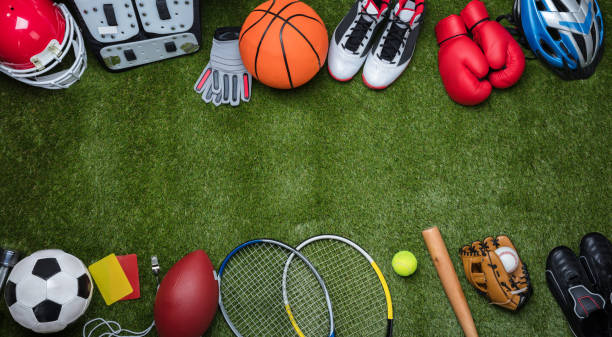
It’s hard to believe, but in just a few weeks, it will have been twenty years since the nine-eleven terrorist attacks on the World Trade Center. Think about what America was like before those attacks and afterward. Many people feel like the twenty-first century only began in earnest on that crisp fall day back in 2001.
Those who lived through that time and are old enough to remember it will doubtless always reflect on precisely where they were and what they were doing when the towers fell. It’s the same as people who remember the moon landing or the JFK assassination.
It was hard to heal, and in some ways, America is still recovering, nearly twenty years later. That attack is part of our country’s rich but sometimes painful tapestry, and it always will be.
Sports helped the country heal in the days after 9-11, just as they often do after seminal US events. Let’s talk about how sports allowed us to go on with our lives and the impact they continue to have.
The First Baseball Game After 9-11
Some people try not to think about what happened that day, but for others, that’s impossible. Those who lost a loved one when the Towers fell, for instance, can’t help but think about those events every day, even two decades later. The 9-11 Victim Compensation Fund exists to help those directly affected, but money alone doesn’t make the pain go away.
Sports can help national anguish go away sometimes, though, and the first Mets game in New York after nine-eleven is the perfect example. Baseball came to a grinding halt when terrorists attacked the towers, just as all professional sports did. As it was September, pennant-race baseball was in full swing at the time.
In the first New York game after those attacks, the Mets faced off against the Atlanta Braves. Mike Piazza, the Mets’ slugging catcher, belted a two-run homer off of Steve Karsay in the bottom of the eighth inning that delivered the Mets the lead. The Mets won that game, 3-2.
When the stadium erupted in cheers, you could see the emotion on Piazza’s face as he rounded the bases. It was more than a home run and victory for him, as he explained afterward. It was the thought that maybe we could all start to turn the corner and forge ahead with our lives.
WWF Unforgiven
In that same month, September of 2001, the World Wrestling Federation held their pay-per-view, Unforgiven, at the famed Igloo in Pittsburgh, Pennsylvania. The WWF was on the verge of becoming the WWE at that time. They had just bought out their main competitor, WCW, and they were flying high.
In that show’s main event, Pittsburgh’s Olympic gold medalist, Kurt Angle, defeated Stone Cold Steve Austin in a memorable encounter and captured the WWF title. When the show went off the air, Angle had tears in his eyes as he wrapped himself in the American flag.
The way Vince McMahon booked the main event should surprise no one. It was, at that point, just two weeks since the World Trade Center attack. The WWF felt, and rightly so, that their audience needed a little patriotic boost to try and rekindle a sense of national pride.
Sports Continue to Help Us Have Important Conversations
No one wrote the script for Piazza hitting that home run in New York, but Angle winning the WWF title was a different matter. Even though wrestling is not a “sport,” in the word’s traditional sense, though, it can have the same impact. The storylines in sports, whether scripted or not, can reflect what the audience is feeling.
The same is true right now. Just these past few years, athletes like Colin Kaepernick have taken a knee to protest police brutality. Basketball players have worn clothing showing support for Breanna Taylor and George Floyd’s family.
You can agree with the sentiments those athletes express or not, but one thing is certain. Sports continue to be a microcosm of what takes place in the world around them. The athletes that take part in them are a part of society, and it’s hard not to identify with them sometimes in the context of broader national and global events.
Nine-eleven is a scar that may never entirely heal, but sports helped us start that long and arduous process. That is just part of why people love them and feel so passionately about them.